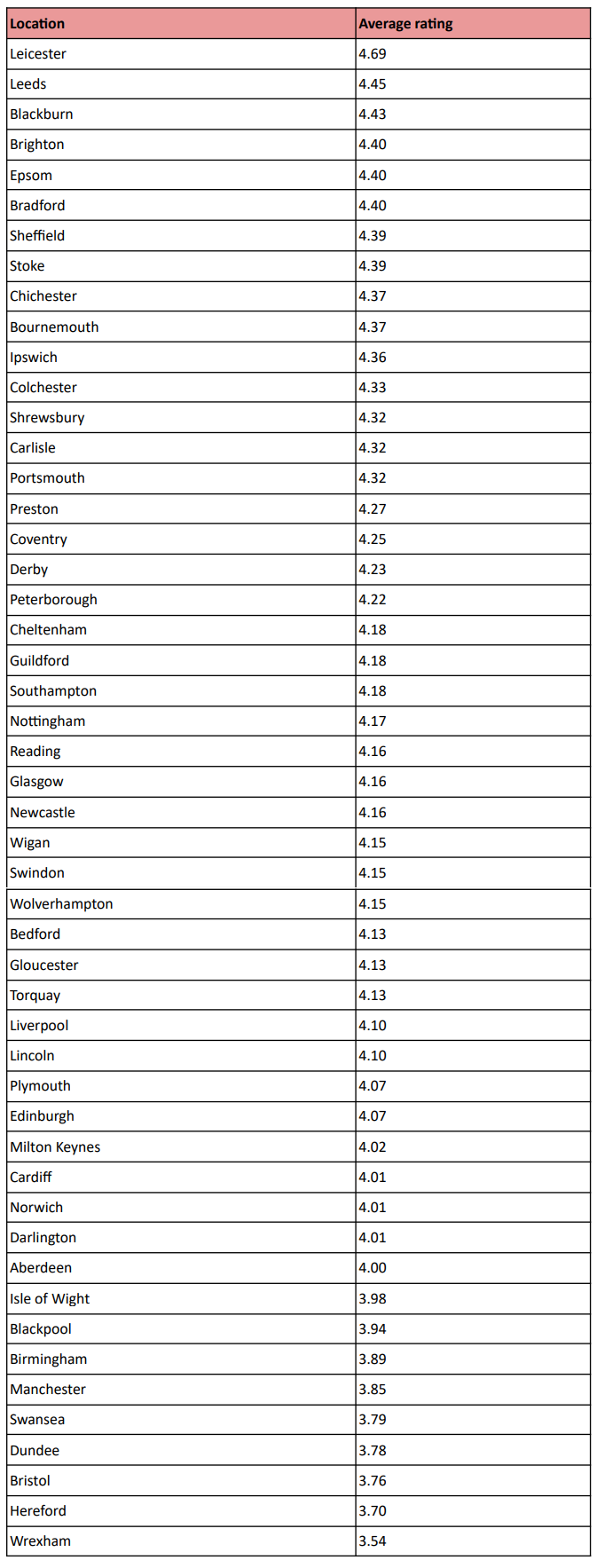What are clients saying about law firms in online reviews?
Word of mouth recommendations have always been the lifeblood of solicitors’ firms, and for good reason. Trust is critical, with clients typically instructing a solicitor for personal matters when they’re facing big life events or difficult situations.
That decision for which firm to instruct is often influenced by someone we know. It’s typically a friend or colleague’s experience of a firm, a recommendation by a professional we trust like a mortgage broker, or a legal practitioner family members have used for years.

But offline recommendations are often backed up by online reviews as part of the thorough decision process that many clients go through as it provides another avenue of information to verify that trust they place in a firm.
According to research, 89% of consumers check online reviews before making a purchase and the majority trust these reviews, so it’s really crucial for law firms to ensure they encourage clients to leave them.
Securing ongoing client feedback, both on and offline, should be a key part of a law firm's customer satisfaction, retention and growth strategy. But it’s understandable that legal professionals are focused on securing the best outcomes for their clients, so they can be stretched for time to ask for reviews.
Firms can use their case management system to make this process easier. Access Legal’s case management software for example is integrated with ReviewSolicitors, to automatically request and gather customer reviews seamlessly before and after the matter - taking a small but important job off a legal practitioner’s plate.
With a greater emphasis on reviews – Access Legal wanted to understand which areas of law clients are rating highest and where in the UK clients are receiving the best service, according to their own feedback.
We analysed ratings for almost 1,000 small and mid-sized law firms in 50 towns and cities in the UK on review sites Google, Trustpilot and ReviewSolicitors to see how ratings for law firms stack up.
So, do firms practising a specific area of law provide a better client experience or those in specific regions of the country?
The clients have spoken and the insights are here
Criminal law comes out on top
Overall, firms scored an average of 4.32 out of 5 on Google, 3.69 on Trustpilot, and 4.28 on ReviewSolicitors – averaging just over 4 across all the three platforms.
These findings were reflected across the seven key areas of law included in the research.
Criminal law, one of the most emotive specialisms, came out on top with a rating of 4.29, just ahead of motoring law at 4.27. All scored comfortably above 4 – even family law, another emotive specialism.

Ewan Lockhart, who is Chief Executive of Davies and Partners Solicitors – a national law firm which practises personal injury, family law and wills and probates among its services – believes the importance of reviews to law firms are now being realised:
“As more and more people get used to relying on reviews for a variety of products and services, reviews have become more and more important for law firms. They are particularly crucial in the context of private client work where using a solicitor is a distress purchase that is entered into without any prior knowledge or experience of using solicitors before.
“We encourage our clients to leave reviews at the end of each matter through client satisfaction questionnaires and instructions on how to leave a review, to ensure that the good work our practitioners are carrying out, can be demonstrated to prospective new clients.”
Leicester has the best rated law firms
There were some strong performances across the board when it comes to locations, with Leicester leading the way followed by Leeds and Blackburn. In Leicester, the stand-out firm was Bond Adams with an average of 4.7 across all three platforms analysed, while in Leeds it was Milners Solicitors at 4.8.

Explore the full list of top 50 UK locations for law firm ratings

Commenting on the findings, Bishu Solomon Girma, customer success director at Access Legal, said:
It’s great to see that most of the firms we analysed achieved an average score of 4 or higher – though that’s not to say that quality of service in those lower down the table is poor. It may be that they have not asked their happy or longstanding clients for a review, so their rating may be skewed.

Currently, only around 44% of firms actively ask their clients to post an online review about their experiences. Some might understandably be concerned about the risk of clients airing relatively minor grievances online, or even fake, unfair and/or defamatory comments.
However, there are steps you can take to protect and improve your reputation online.
Bishu added:
The good thing about asking for reviews on platforms like Trustpilot is that you can verify the user to ensure that only clients who’ve actually engaged your services can post a comment. Although it can be difficult to receive negative, even constructive feedback, honest feedback can help you to identify areas for improvement and boost your rating over time. The SRA has set out some clear guidelines on engaging with reviews, highlighting the importance of responding in a constructive way.
To improve law firms' client communications, inCase, now part of Access Legal, provides legal practices with an innovative app allowing efficient, secure and easy communications with clients. Not only has the app freed up lawyers' time by reducing the amount of calls and emails they receive but it has radically improved the experience for the end clients.”
Methodology
We analysed 50 small and mid-sized firms across the UK in 955 towns and cities across the UK, using data from Google, Review Solicitors and Trustpilot. From this, we created an average score from a maximum total of 15 (5 being the highest score). We also looked at the average score for seven legal specialisms (criminal, motoring, personal injury, conveyancing, wills and probate, family and corporate).



